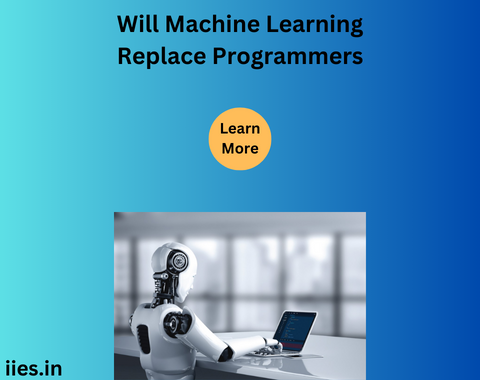Machine learning has made significant strides in recent years, demonstrating its ability to automate certain aspects of programming. One of the areas where machine learning has shown promise is in code generation. AutoML (Automated Machine Learning) tools have emerged, allowing developers to automate the process of designing and optimizing machine learning models. These tools leverage algorithms to automatically select the most suitable models, preprocess data, and tune hyperparameters, reducing the need for manual intervention.
The Prospective Impact on Programming Jobs
The prospect of machine learning replacing programmers has led to concerns about job displacement in the programming and software development industry. If machines can generate code more efficiently than humans, what will happen to the demand for traditional programming skills?
While it is true that certain routine and repetitive coding tasks may be automated, many experts argue that the role of programmers is likely to evolve rather than disappear entirely.
Machine learning tools and algorithms are powerful tools, but they lack the creativity, critical thinking, and problem-solving skills inherent in human programmers. Programming is not just about writing lines of code; it involves understanding complex problem domains, designing elegant solutions, and adapting to ever-changing requirements.
Human programmers bring a unique set of skills to the table that is not easily replicated by machines.
Furthermore, the integration of machine learning into programming may create new opportunities and roles for programmers. Instead of being replaced, programmers may find themselves working alongside machine learning systems, leveraging these tools to enhance their productivity and focus on more complex and creative aspects of software development.
The Collaborative Future: Humans and Machines Working Together
Rather than framing the discussion as a dichotomy between humans and machines, it is more realistic to envision a collaborative future where programmers and machine learning systems work together synergistically. Machine learning can assist programmers in various ways, such as automating repetitive tasks, optimizing code performance, and even suggesting innovative solutions based on vast datasets.
For example, machine learning algorithms can analyze large codebases to identify patterns, detect bugs, and propose optimizations. This can significantly speed up the debugging and optimization process, allowing programmers to allocate more time to high-level design and problem-solving. In essence, machine learning becomes a valuable tool in the programmer’s toolkit, augmenting their capabilities rather than replacing them.
The Ethical Dimensions of Automation
While the integration of machine learning in programming offers numerous benefits, it also raises ethical considerations. As automation becomes more prevalent, questions about job displacement, fairness, and accountability come to the forefront. It is essential to address these concerns proactively to ensure a responsible and ethical deployment of machine learning in programming.
One potential risk is the concentration of power in the hands of a few organizations that develop and control advanced machine learning models. The ethical use of these models must be a priority, considering issues such as bias, transparency, and the potential misuse of AI-generated code. Developers, policymakers, and the tech industry as a whole need to collaborate to establish guidelines and regulations that promote ethical practices in the development and deployment of machine learning tools.

